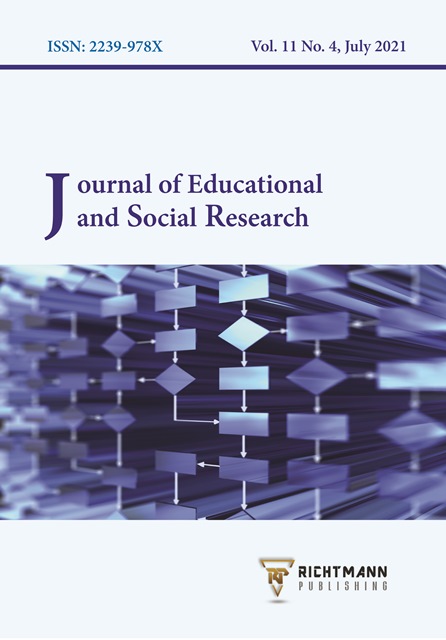The Application of the Simulation Method in the in Foreign Language Teaching in Higher Education Institutions, the Cognitive Linguistic Approach
DOI:
https://doi.org/10.36941/jesr-2021-0072Keywords:
students, cognitive linguistic approach, simulation approach, foreign language, language competencies and the tense forms of verbsAbstract
This article presents the results of the research aimed at proving the efficiency of using the simulation method in combination with the cognitive linguistic approach in teaching students a foreign language. The experimental group students studied the foreign (English) language course during the semester of the 2019-2020 academic year using simulations. The methodology consisted of the performance of roles by the students who actively interacted for the implementation of assigned tasks. Kravchenko's cognitive linguistic algorithm was used to develop the skills of English grammar. This allowed us to establish the similarities between the temporal forms of English and Ukrainian words in discourse. The efficiency was evaluated through the test, developed by the author based on the exercises from the book by Holitsynskyi. Diagnostics of the students' level of motivation to learn a foreign language using simulations and cognitive linguistic approach was performed with the help of the Self-Assessment Form Student test, described in the EU manual. The statistical significance of the study results was established using Pearson's ?2 test. The correlation between the factor and resultant characteristics was established using Tschuprow's contingency coefficient. This was revealed through the methodology of applying the cognitive linguistic approach regarding the training of the skills in choosing the tense forms of a verb in English and the method of simulations in the development of language competencies of the business foreign language. It was found that the proportion of experimental group students with a high and sufficient level of success in learning a foreign language doubled, exceeding the same indicator in the control group. The total number of students with very high, high and average levels of development of skills in choosing the tense forms of the verb in English increased by 36%. The influence of the skills of choosing the tense forms of the verb on the development of the skills of using grammatical structures found in the process of the simulation was recorded. The results of the study can be applied in teaching students a foreign language in the institutions of higher and secondary education, as well as in the system of post-graduate education. The problems of individual students' passivity regarding their participation in simulations, failure to use a foreign language in group work require further research.
Received: 19 March 2021 / Accepted: 20 May 2021 / Published: 8 July 2021
Downloads
Downloads
Published
Issue
Section
License

This work is licensed under a Creative Commons Attribution-NonCommercial 4.0 International License.
This work is licensed under a Creative Commons Attribution-NonCommercial 4.0 International License.









